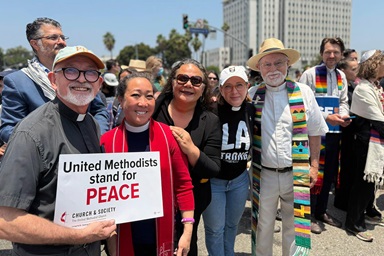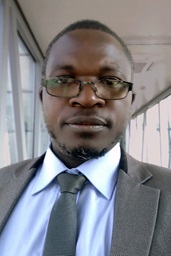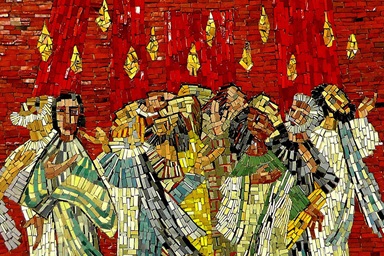General Conference organizers announced that the denomination’s top lawmaking assembly — long postponed by pandemic — must wait to meet another year. The global gathering is now scheduled Aug. 29-Sept. 6, 2022, in Minneapolis.
At the same time, the Council of Bishops has announced a special one-day General Conference on May 8.
The special global gathering has only 12 pieces of legislation before it — all basically intended to help the church function until the full General Conference meets.
The virtual gathering is to form a quorum to suspend the rules and allow paper balloting. The vote on suspending the rules will be online. But after the online meeting's adjournment, the delegates will have an extended period in which to vote by paper ballot on the 12 legislative items.
Those ballots will be mailed in, with results to be announced by July 13.
“The exclusive use of paper ballots will allow for the fullest participation of delegates from across the denomination,” said Council of Bishops President Cynthia Fierro Harvey in a statement. “This is why the convened session online must be confined solely to gaining permission for the mailed-in paper ballots.”
Not on the agenda is any proposal to split the denomination, including the much-endorsed Protocol of Reconciliation and Grace Through Separation.
In October, the Commission on the General Conference named a technology team to look at virtual options for ensuring full participation. The team’s report outlined several challenges before such a conference.
Those hurdles include the 16-hour time difference between delegates who live in the Philippines and on the U.S. West Coast, the inequity of internet availability and the difficulty in safeguarding voting.
With the slow rollout of vaccines, continued travel restrictions and limitations of virtual technology, the commission concluded Feb. 20 that a full, 10-day session was not possible this year either in-person or online.
“The commission shared the study team’s findings and recommendations with the officers of the Council of Bishops in a collaborative effort to jointly explore how this alternative might be utilized to address critical matters until an in-person gathering of delegates can be safely convened next year,” said Kim Simpson, General Conference commission chair, in a statement.
Even planning the one-day virtual meeting comes with limitations, as Simpson told church leaders in earlier meetings.
The coming General Conference has 862 voting delegates — 55.9% come from the U.S., 32% from Africa, 6% from the Philippines, 4.6% from Europe and the remainder from concordat churches that have close ties to The United Methodist Church.
At a typical General Conference, bishops from around the globe as well as interpreters and other staff are needed for the proceedings.
That kind of meeting is not possible this year. But in the meantime, denominational ministries have been struggling to find workarounds to function in a situation never anticipated by the Book of Discipline — whose contents General Conference determines.
“When we became aware of the need for a further postponement, we knew that some action needed to be taken in order to free the church to operate and continue to fulfill its current mission until we could gather in person,” said Harvey, who leads the Louisiana Conference as well as the Council of Bishops.
After the COVID-19 pandemic forced the assembly’s postponement from May 2020, the commission rescheduled General Conference for Aug. 29-Sept. 7 this year and kept it in Minneapolis.
The commission maintained the late-summer dates even after young-adult delegates and other United Methodists urged a change because the new schedule conflicted with the start of the academic calendar. However, the commission also committed to look at ways for delegates to vote remotely.
As the pandemic continued to claim lives around the globe and travel restrictions persisted, calls increased for the General Conference commission to consider virtual options for the assembly.
On Feb. 20, the commission met online in closed session to review and make decisions based on its study team’s report. Joining commission members and staff for the meeting was Leonard Young, who served as parliamentarian for the special 2019 General Conference.
The Discipline says that “in the spirit of openness and accountability,” almost all church meetings should be open.
In Paragraph 722, the Discipline does allow closed sessions for “negotiations, when general knowledge could be harmful to the negotiation process” and “negotiations involving confidential third-party information.” The commission cited the negotiation exceptions when it went into closed session.
While the commission did not disclose internal discussions, the group did face requests before its meeting, especially from traditionalists, that whatever shortened agenda it chose include the protocol for separation.
After decades of debate over LGBTQ inclusion, the protocol opens the door for new denominations to break away with property and church funds. A traditionalist coalition and a liberationist group already have plans to depart. The Wesleyan Covenant Association, a traditionalist group, has a global gathering scheduled for May 1 to discuss its plans for its future denomination.
However, the process outlined in the protocol hinges on General Conference approval. For now, the Judicial Council — the denomination’s top court — has the bishops’ request to review the protocol’s constitutionality on its current docket.
The agenda for the coming May 8 special General Conference includes legislation to:
• Bring the Discipline in line with a recent Judicial Council decision.
• Maintain the current denomination’s budget until the full global lawmaking assembly can meet.
• Give the General Conference commission and other bodies more flexibility in dealing with delays caused by war, political upheaval, natural disaster, disease outbreak, travel restrictions or other developments.
Crucially, the new legislation would allow bishops planning to retire to do so this year — potentially relieving some strain on the denomination’s finances.
Originally, after the delay in General Conference, the Council of Bishops announced that jurisdictional conferences would meet in November, and central conferences began scheduling their meetings. The five jurisdictional conferences elect bishops who serve in the U.S., and seven central conferences elect the bishops who serve in Africa, Europe and the Philippines.
But the trouble was, the Discipline sets the retirement date for U.S. bishops on Aug. 31 following a regular session of the jurisdictional conference — meaning any U.S. bishop planning to retire before the coming jurisdictional conference would have to wait until August 2022 to step down.
Now, the Council of Bishops is offering legislation to eliminate the Aug. 31 mandate and instead replace it with 60 days after jurisdictional conferences adjourn.
The bishops also have set a new timeline that includes special sessions of the jurisdictional conferences to be held virtually in July 2021.
The Episcopal Fund that supports bishops’ work is already financially strapped. The Council of Bishops has recommended delegates not elect any new U.S. bishops until 2024, although some delegates are discussing at least electing some successors for retiring bishops.
The denomination has 24 bishops who plan to step down as soon as possible, including 16 in the U.S.
Ultimately, the number of bishops is in the hands of delegates.
Hahn is assistant news editor for UM News. Contact her at (615) 742-5470 or [email protected]. To read more United Methodist news, subscribe to the free Daily or Weekly Digests.
Like what you're reading? Support the ministry of UM News! Your support ensures the latest denominational news, dynamic stories and informative articles will continue to connect our global community. Make a tax-deductible donation at ResourceUMC.org/GiveUMCom.




